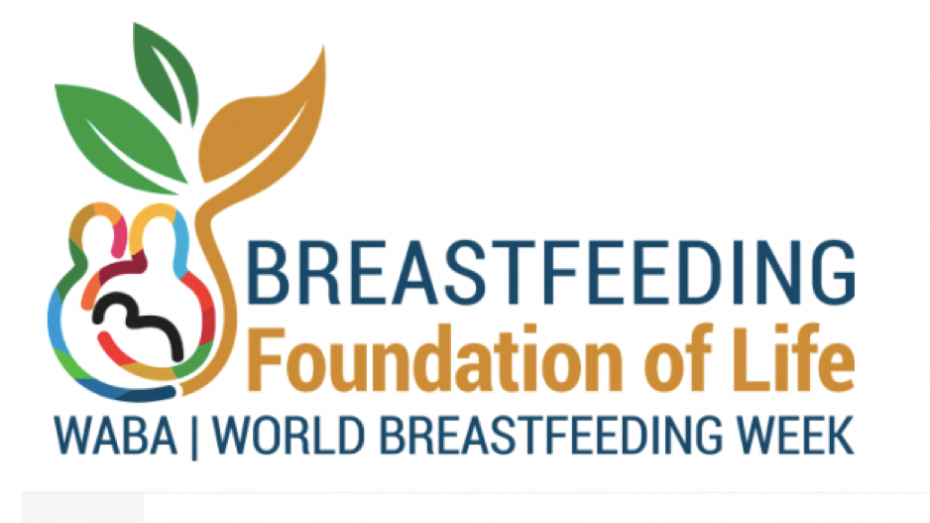
Ranchi, Jharkhand | August | 01, 2018 :: Improving the rates of breastfeeding is a critical intervention to improve health and wellbeing and survival of child. Breastfeeding helps to prevent malnutrition in all forms, ensure food security for infants and young children even at time of crises, and thus helps to bring people and nations out of hunger and poverty cycle. The theme of the World Breastfeeding Week, observed 1 – 7 August, is “Breastfeeding: A foundation of life”
Breastfeeding: A Foundation of life
• Breastfeeding is associated with an IQ increase of 3 to 4 points .
• With breastfeeding, mothers share elements of their immune system, which provides babies with a protective umbrella as their immune systems develop.
• Children younger than 6 months old who are breastfed exclusively for longer periods have lower rates of infectious disease and death than children who are breastfed for shorter periods or who are not breastfed.
• Providing support to mothers to breastfeed could cut the incidents of diarrhoea by half and respiratory infections by a third.
• Breastfeeding improves cognitive development and intelligence.
• Early childhood stimulation during breastfeeding is critical for child’s cognitive development. Therefore, while breastfeeding and when you are with the baby, smile, speak and play with the baby.
Breastfeeding is a smart investment for healthy children and for a wealthy nation.
• Every US$1 invested in breastfeeding generates an estimated US$35 in economic returns
• Improving the rate at which children are breastfed exclusively for the first six months at least upto 50 percent would save the lives of 520,000 children in the next 10 years .
• In low- and middle-income countries, better rates of exclusive breastfeeding would increase children’s chances of survival and their cognitive capability – enabling more children to earn more as adults. As a result, these countries could see a US$300 billion increase in economic growth in next 10 years by 2025 . (base line year 2015)
Situation in Jharkhand
The key statistics from Jharkhand as per the National Family Health Survey (NFHS-4) are below
• Early initiation of breastfeeding: 33%
• Exclusive breastfeeding for children up to 6 months: 65%
• Complementary feeding (children 6-8 months): 47%
• Children aged 6-23 months receiving adequate diet: 7%
The Jan Andolan strategy under the Poshan Abhiyan aims to create a momentum and public awareness for appropriate infant and young child feeding and malnutrition in the state. Poshan Abhiyan was launched by Hon’ble Prime Minister of India, Shri Narendra Modi on 8 March 2018
Dr Madhulika Jonathan, Chief UNICEF Jharkhand says, “The ‘MAA-Mother’s Absolute Affection’ programme was launched by the Hon’ble Chief Minister of Jharkhand Shri Raghubar Das in September 2017. It is a nationwide programme launched in an attempt to bring undiluted focus on promotion of breastfeeding and provision of counselling services for supporting breastfeeding through health systems. The programme has been named ‘MAA’ to signify the support a lactating mother requires from family members and at health facilities to breastfeed successfully. The chief components of the MAA Programme are Community awareness generation, strengthening inter personal communication through ASHA, skilled support for breastfeeding at delivery points in Public health facilities, and monitoring and award/recognition.”
The Government of Jharkhand has appointed 9581 Poshan Sakhis in six districts of Jharkhand (Chatra, Koderma, Giridih, Dhanbad, Godda and Dhanbad).
Around 38,432 Anganwadi workers are working every day to counsel and support mothers and families to promote breast feeding, complementary food and feeding though home visits and group counselling.
Some of the activities planned in Jharkhand during the breastfeeding week are:
? State and district level celebrations including family and community awareness campaigns
? The Poshan Sakhis appointed by the Government in the above 6 districts will be trained on breastfeeding counselling by August 2018
? Around 1920 ANMs from all 24 districts of Jharkhand will be oriented on counselling skills for early initiation of breastfeeding and exclusive breastfeeding in a phase wise manner under MAA programme by December 2019
? 40,963 Sahiyas/ASHA of the state will be oriented on breastfeeding practices and age appropriate complementary feeding in a phase wise manner under MAA programme by December 2019.
What needs to be done?
The Infant Milk Substitutes, feeding bottles and infant food (Regulation of Production, Supplies and Distribution) Act 1992 needs re-enforcement and effective implementation. The Maternity Benefit Act should be implemented and mothers provided support in the work place.


![Lens Eye - News Portal - Hemant Soren [ Chief Minister, Jharkhand ] at an Iftar.](https://www.lenseye.co/wp-content/uploads/2014/07/15-Hemant-Soren.jpg)
